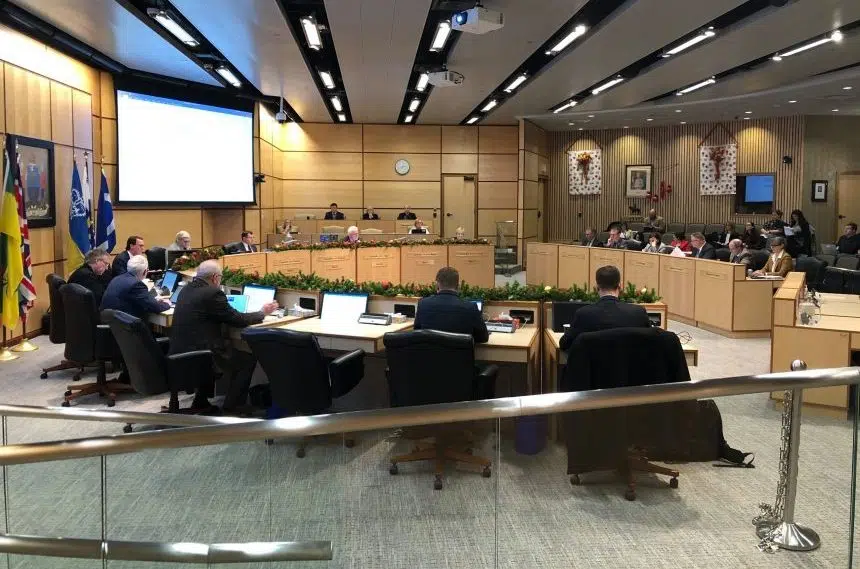The City of Regina is moving forward with a faster timeline to replace its remaining lead pipe connections.
While 95 per cent of city-owned water connections are lead-free, the remaining five per cent, approximately 3,600 lead connections, still need to be replaced.
At a special meeting Tuesday afternoon, city council decided to fast-track the process to complete the work by 2025.
“We had a schedule to do it over 20 years and now we’re going to just compress that to five years. We’ll do a lot more work, a lot more construction, a lot more work on the homeowner side and the city side as well,” said Mayor Michael Fougere.
City administration will also prepare and present a report in March that will outline further details behind a program providing an incentive to help homeowners replace lead pipes on their side of the connection.
The city could end up funding part or all of the replacement costs up front with the homeowners repaying the amount over time.
Regardless of how the program looks, Fougere wants it to be a mandatory program.
“Because (residents) may move and the next person coming in may have the next problem, so I think we need to make sure we get this cleared up,” said Fougere.
The report will also have more details on the cost of the replacements and how it will be paid for. While the city does not know exactly how many lead pipes require replacements on the homeowner side, it estimates the cost of replacing each city-side connection at $10,000 to $12,000.
Given there are 3,600 city connections to replace, that puts the cost at $36 million to $43.2 million.
“We’ll do it through the utilities. That’s the recommendation. That’s what council asked for. We’ll get the implications of that report on what that means for homeowners but it will not be on the property tax bill,” said Fougere. “It won’t be subsidized by all taxpayers around the city.”
Fougere said a decision will be made on whether the cost will be covered through the utility operations or reserve funds.
The city is not expecting any financial help from the province. Last month, the provincial government pointed to revenue-sharing money that municipalities can put into anything they deem necessary.
“Whether they do or not, we’re going to proceed with the program. We’re going to make sure we get it done. We’d like to have them help us but if they’re saying no, we’re going to proceed in any case,” said Fougere.
The city also decided to offer free filters until the end of the program, amended from the motion’s original three-year limit. It will also add orthophosphate to the city’s water supply to prevent pipes from leaching.







